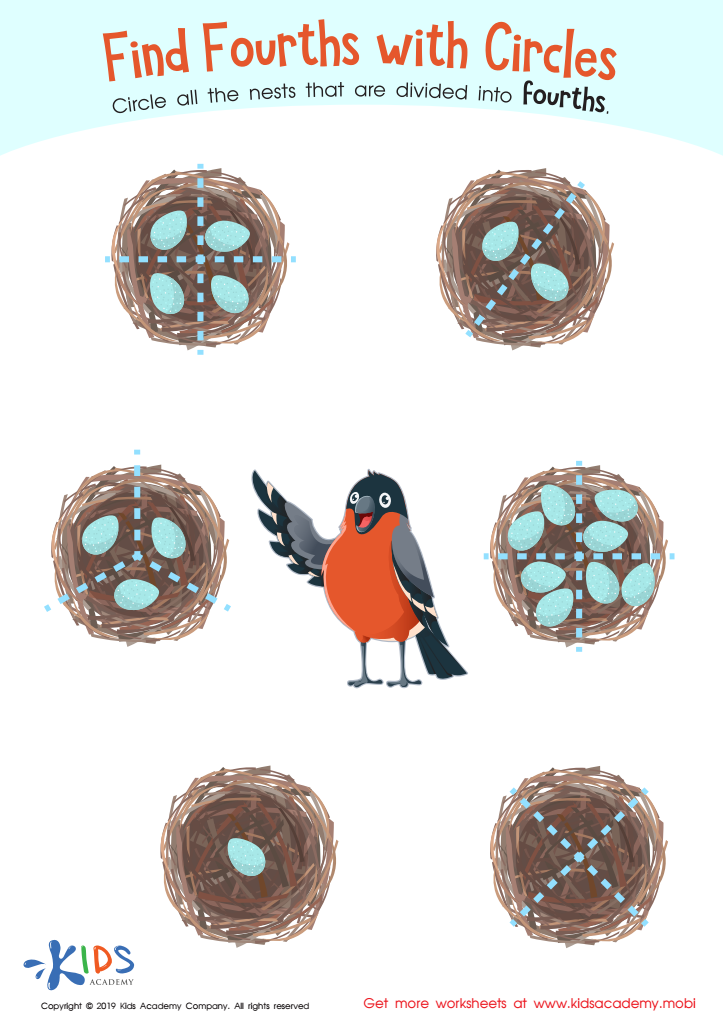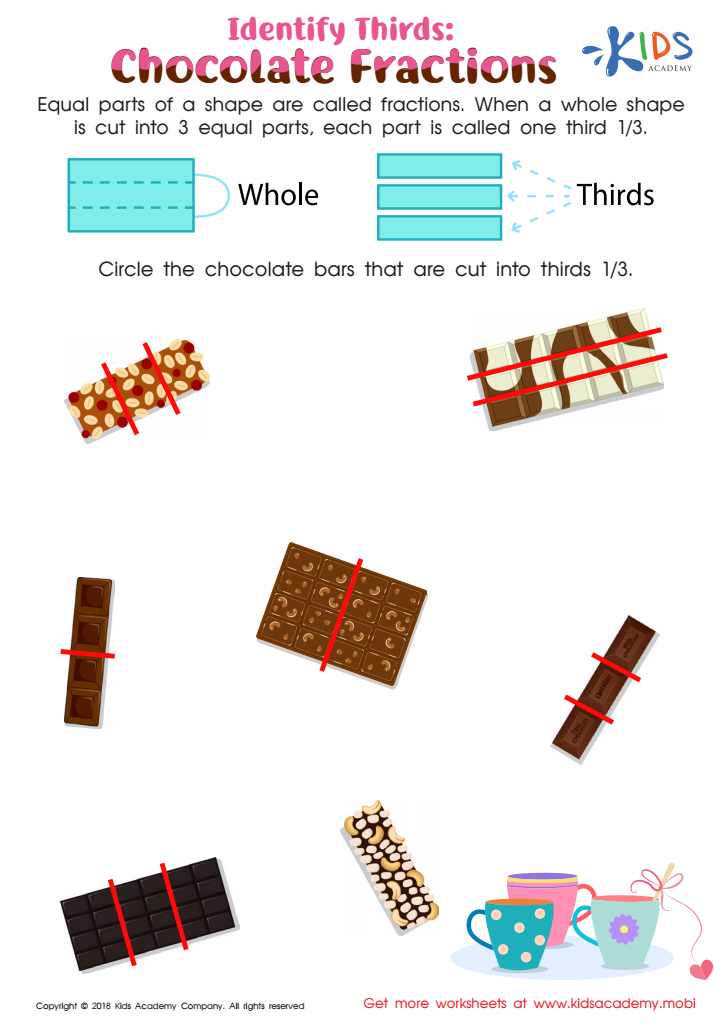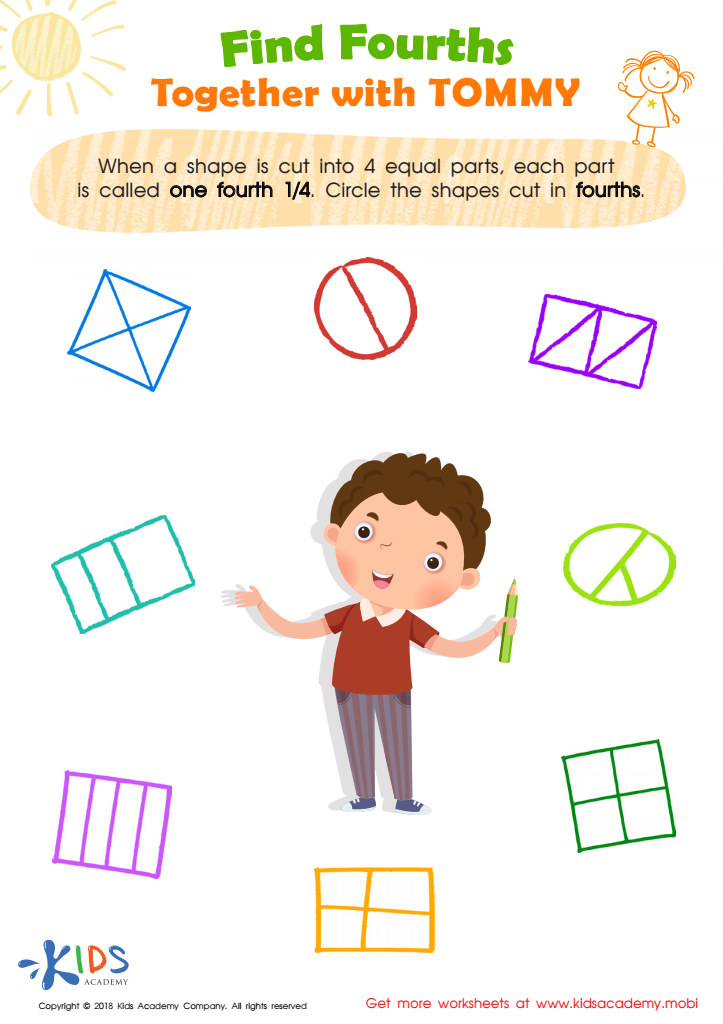Visual representation comprehension Geometry Worksheets for Ages 5-7
3 filtered results
-
From - To
Explore our Visual Representation Comprehension Geometry Worksheets designed for young learners aged 5-7! These engaging and interactive worksheets help children develop essential spatial awareness and geometry skills through visual aids. By participating in fun activities that involve identifying shapes, understanding spatial relationships, and interpreting visual representations, kids enhance their critical thinking and problem-solving abilities. Our carefully crafted resources provide a solid foundation in geometry, making math enjoyable and accessible. Ideal for both classroom and home learning, these worksheets foster independent learning and boost confidence in young mathematicians. Download our Visual Representation Comprehension Geometry worksheets today and inspire a love for math!


Find Fourths Circles Worksheet


Identify Thirds: Chocolate Fractions Worksheet


Find Fourths Together with Tommy Worksheet
Visual representation comprehension in geometry is crucial for children aged 5-7 as it lays the foundation for their mathematical understanding and spatial awareness. At this developmental stage, children learn best through concrete and visual means. Engaging with geometric shapes and concepts helps them recognize patterns, establish relationships, and improve reasoning skills.
Parents and teachers should care about this aspect of learning because a strong grasp of visual representation in geometry fosters critical thinking and problem-solving abilities. When children can visualize and manipulate shapes, they develop the ability to approach complex mathematical concepts with confidence later on. This early exposure cultivates curiosity about mathematics, encouraging a lifelong love of learning.
Additionally, understanding visual representations enhances communication skills. Children learn to articulate their thought processes and reasoning, essential skills that extend beyond math to other subject areas. Investing time in activities that promote visual representation comprehension, such as drawing shapes, using building blocks, or incorporating technology like geometric apps, can significantly impact a child's cognitive development.
Ultimately, a solid foundation in geometry equips children with the skills they need to navigate more advanced mathematical concepts in the future, ensuring academic success and fostering a well-rounded educational experience.
 Assign to My Students
Assign to My Students


























